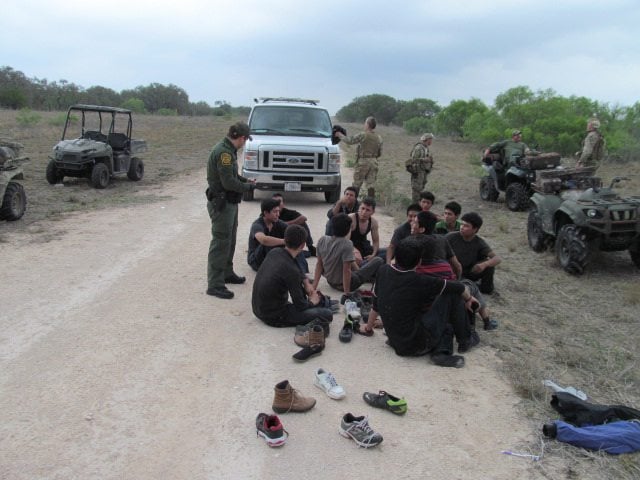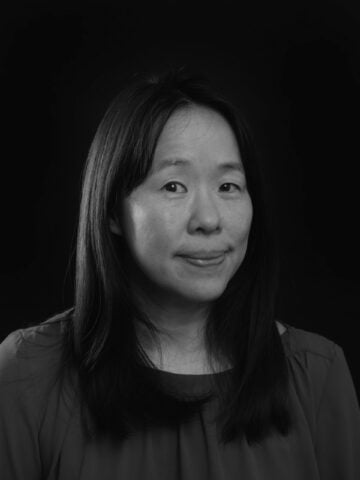
Working Class Perspectives on the ‘Migrant Crisis’
NYC Mayor Eric Adams was supposed to welcome immigrants bused from Texas. That's not what's happened.

When Governor Greg Abbott first started busing migrants to liberal strongholds around the country in 2022, Democratic leaders shot back, calling his political stunt racist and inhumane. New York City Mayor Eric Adams wrote on X, formerly known as Twitter: “Greg Abbott used innocent people as political pawns to manufacture a crisis. New Yorkers are stepping up to fix it — that’s our city’s values.”
But in the past few months, Adams and some other Democratic leaders have sounded more like Abbott and other Republican leaders. In September, Adams said during a town hall meeting, “[The migrant crisis] will destroy New York City,” and after that traveled to Mexico to personally dissuade migrants from coming to the United States. Now, President Joe Biden, who had campaigned in 2020 to reverse Trump’s anti-immigrant policies, is expanding Trump’s border wall and embracing other Trump policies, including the expedited removal of migrants at the border without a hearing, making it harder for migrants to get asylum, making permanent pandemic-era border restrictions, and mandating detention for immigrants waiting for a court date.
As leaders from both sides of the aisle converge on policies and rhetoric around the migrant crisis, fueling divisions in communities, we spoke with organizers from immigrant worker’s centers in both El Paso and New York City who are challenging these narratives to unite workers in their communities. Carlos Marentes is the founder and director of the El Paso organization Border Agricultural Workers Project, which was formed in 1980 to address the diverse needs of farmworkers based in the city and to call for equal rights for them to organize. Joann Lum is the director of the New York City Workers Center National Mobilization Against Sweatshops, which has organized workers across various trades since 1995.
Texas Observer: What does it look like on the El Paso border and New York City with the migrant influx from Abbott’s busing scheme?
Carlos Marentes: In the border region, we are experiencing a state of war. We have all these military deployments along the border, state troopers, the National Guard, and all these military officers. We have what the governor of Texas calls Operation Lonestar, which is the military strategy to deal with mass immigration. Although the focus of the plan is to prevent more migrants from crossing into the United States, it is affecting poor people, older people. So, here, we also see an increase in human rights violations against the locals in the border community. Day and night, we have all this military build-up in a poor community on the border, where we lack the essential elements of life. We still have colonias [colonies] in Texas, where there are no public services, water, drainage, or anything. But then we can build walls and deploy an army pointed towards Mexico, ready to contain migrants.
Joann Lum: There have been more than 100,000 [new migrants] in New York City in the last year. Many of our members ask, “Hey, what about us?” Whether they’re undocumented Mexican workers, restaurant workers, or permanent residents, they all have said similar things. Our mayor has helped to fuel that by announcing that this migrant crisis is going to destroy the city and that in the next three years, we will probably spend $12 billion on this migrant crisis.
“Our mayor has helped to fuel that by announcing that this migrant crisis is going to destroy the city.”
TO: Traditionally, Republicans or conservatives will say we need to deport migrants, that they’re taking our resources, they’re hurting citizens. On the other hand, Democrats say no, we need more migrants here to build the workforce to resolve the labor shortage. Now, we hear some of their rhetoric starting to converge.
Lum: I think they are two sides of the same coin. So the Republicans and conservatives are jumping up and down saying, “We got to stop the migrants from coming in. They’re criminals; they’re bad; they’re going to take away jobs. Our people are suffering; we gotta protect our communities.” But then, at the same time, they don’t care about our communities. They don’t provide services and programs and make sure jobs are good. And then, on the other side, the Democrats say, “No, no; we like immigrants. They contribute a lot; let’s help them get work permits, asylum, and things like that to channel them into cheap labor jobs.” So, people are resentful here. And it’s diverting a lot of attention to blame the migrants and taking away attention from the ruling class who are benefiting from all this.
TO: You mentioned that the current immigration policies are not just an attack on migrants but on the working poor. Can you explain how you see this in El Paso and New York City?
Marentes: This concept of the crisis of migration is that most of the problems we face in America today are to be blamed on immigrants coming to this country. They [politicians] argue that migrants are draining public resources, but then we have this crazy spending on defense. In the current debate about the so-called debt ceiling, made by both Republicans and the Democrats, the need to make cuts, especially to programs directed to children and women, is nothing new. The Reaganomics of the 1980s was when the government started cutting social spending. It has been going on for years through Clinton’s welfare reform. Social spending is so insignificant in this country that politicians have to find the cause somewhere else; now, it’s the migrants to blame. But our crisis was not created by immigrants but by the continuous cuts to social spending to fuel the military-industrial complex of this nation.
Lum: Right now, we see a lot of restaurant workers and other service workers who do not get even minimum wage or overtime. Most are immigrants. But then, in the homecare industry, we see workers forced to work 24 hours a day for several days but are only paid for 13 hours. This includes immigrant and citizen workers who are members of the big union 1199 SEIU. So everybody’s saying there’s a shortage of workers in the restaurant industry and in-home care, but it’s because people don’t want to work 24 hours a day, destroy their health, and never be able to see their families. So, employers are hoping for new migrants to address this shortage. But really, there’s no shortage. There are a lot of jobs that have become bad jobs because labor laws are not enforced.
TO: We’ve discussed the pull factor: employers seek more immigrant labor to super-exploit. But what about the push factor pushing migrants to emigrate from their home countries?
Marentes: Citizens in the United States are concerned about the so-called crisis of migration, but few people ask why these people come into this country; moreover, who is responsible for the displacement of these human beings? Because nobody leaves their family homeland without a reason. In 2009, a lot of the immigrants coming here were from Honduras. In July 2009, the American Embassy in Tegucigalpa organized a military coup in Honduras. At the time, the secretary of state was Hillary Clinton, and the vice president was Biden. That military coup in Honduras increased the violence against the poor people, especially in the rural areas of Honduras. Families from Honduras attempting to get into the United States were trying to escape the violence and the deaths.
Lum: Many migrants coming to New York City now are from Venezuela and Cuba. The U.S. has attempted to control these socialist countries and has put sanctions on the country, messing with its economy. So, the people in Venezuela, Cuba, and other countries cannot afford to support their families there. And so they have to look elsewhere. That’s why we see so many coming from these particular countries.
Marentes: We have a particular responsibility for this massive exodus of these dispossessed people. It is our foreign policy that has created an immigration system that is not working for anybody—not for the immigrants or the local workers themselves.
TO: What is the solution?
There are 12 million migrants in this country who have lived there for many years, whose children were born and educated, and who are part of our communities. We also need to understand the implications of certain measures under the Immigration Reform and Control Act of 1986. One is employer sanctions because employer sanctions doesn’t punish employers for hiring undocumented workers. It is used to lower everybody’s wages, all working people. We also have a system of temporary permits for immigrants that will only work against the interests of working people in general because most of the quick work programs are used to weaken the organization of migrant workers in this country. We need to think about an actual legalization program that brings out of the shadows the 12 million undocumented people who are already here.
“The main goal of our current immigration system is to divide working people, to pit us against each other.”
Lum: I agree with Carlos that we must repeal the employers’ sanctions provision and give equal rights to immigrant workers so all workers can organize together. There should be some system of adjustment of status for everyone after several years. We need to acknowledge that our economy is built on the super-exploitation of people so working people need to find a way to come together and organize.
Marentes: I think the main goal of our current immigration system is to divide working people, to pit us against each other. That way, wealth accumulation in the top 1 percent will continue while services to meet our basic needs decrease. As long as we are divided, as long as we are unable to create a political force to confront all these forms of oppression affecting people in the United States, it is going to be very complicated to make changes. So, we need to intensify our organizing efforts. At the end of the day, workers, whether they are undocumented or not, whether they were born in Massachusetts or were born in Tegucigalpa, are the ones here in America who create the wealth in this country.
This interview has been edited for length and clarity.



